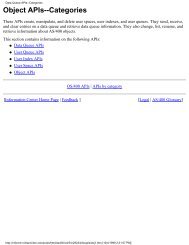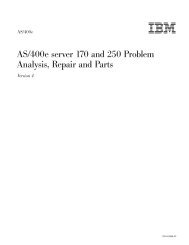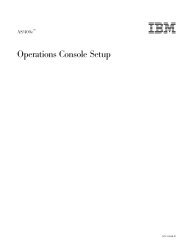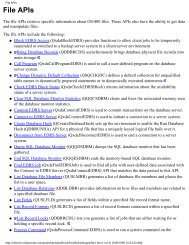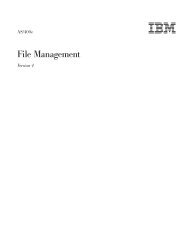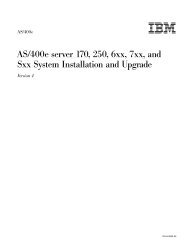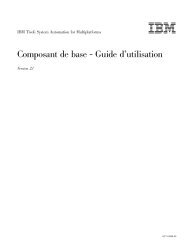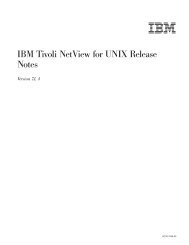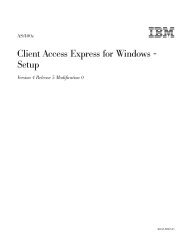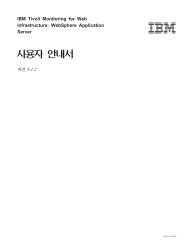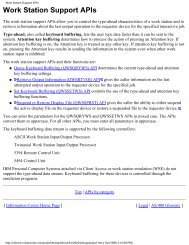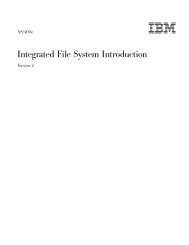Qshell Interpreter (qsh) - FTP Directory Listing - IBM
Qshell Interpreter (qsh) - FTP Directory Listing - IBM
Qshell Interpreter (qsh) - FTP Directory Listing - IBM
You also want an ePaper? Increase the reach of your titles
YUMPU automatically turns print PDFs into web optimized ePapers that Google loves.
Exit Status<br />
Examples<br />
-t Mark every line in the log with the specified tag.<br />
v 0 on success<br />
v >0 if an error occurs.<br />
1. Send the file “test.output.log” to the system log.<br />
logger -f test.output.log<br />
2. Send a message to the system log and standard error, and include a tag.<br />
logger -s -t 'Tag your are it' My message is simple<br />
[ Legal | AS/400 Glossary ]<br />
logname - Display user’s login name<br />
Synopsis<br />
Description<br />
Exit Status<br />
logname<br />
Related Information<br />
The logname utility writes the user’s login name to standard output followed by a<br />
newline.<br />
The logname utility explicitly ignores the LOGNAME and USER environment<br />
variables because the environment cannot be trusted.<br />
v 0 on success<br />
v >0 if an error occurs<br />
v id - Return user identity<br />
[ Legal | AS/400 Glossary ]<br />
tee - Duplicate standard input<br />
Synopsis<br />
Description<br />
110 <strong>Qshell</strong> <strong>Interpreter</strong> (<strong>qsh</strong>)<br />
tee [-ai] [file ...]<br />
The tee utility copies standard input to standard output, making a copy in zero or<br />
more files. The output is unbuffered.



